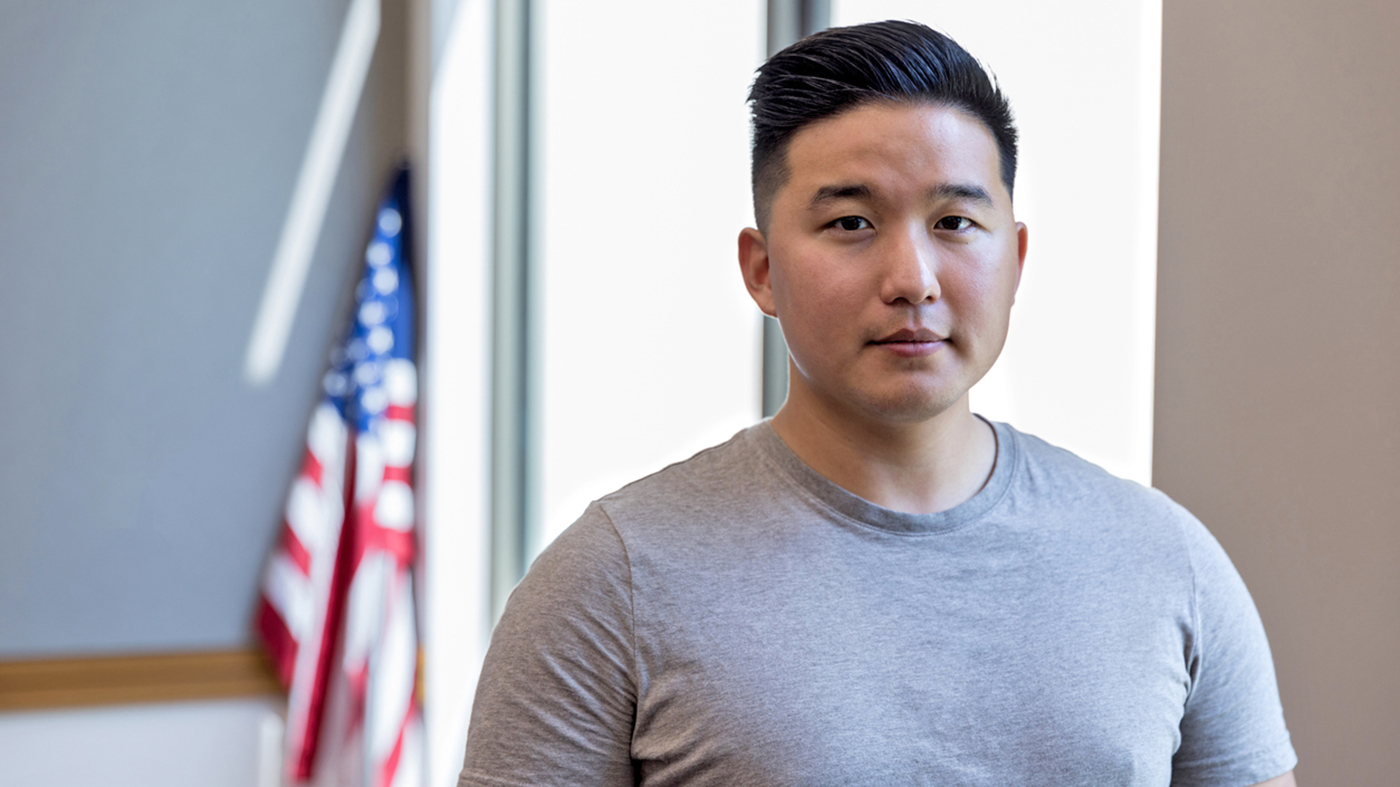The following story includes discussions of sensitive topics like sexual harassment and sexual assault. VA acknowledges that it may be difficult to engage with this content. We encourage you to care for your safety and well-being while reading this content.
May is Asian American and Native Hawaiian/Pacific Islander Heritage (AANHPI) month.
Members of the AANHPI community have proudly served in the United States military since the War of 1812. While VA provides care to nearly 300,000 AANHPI Veterans a year, little data is available about AANHPI Veterans and their experiences with sexual assault and sexual harassment during and after military service.
A lack of information may contribute to treatment gaps for AANHPI Veterans who need care to recover from sexual trauma.
What we do know is that on and off the battlefield, AANHPI people face harmful stereotypes about sex and gender that damage their communities and their quality of life and compound their experience of harassment and sexual assault.
AANHPI women are often faced with exotification and fetishization, leading to perceptions of being submissive, docile, sexually available and “unable to fight back.” The Asian Pacific Institute on Gender-Based Violence has found that up to 55% of Asian women in the U.S. have experienced some form of physical or sexual violence in their lifetime.
1-in-50 have experienced military sexual trauma
According to the National Intimate Partner and Sexual Violence Survey, 9.4% of Asian American, Native Hawaiian and Pacific Islander men experienced some form of contact sexual violence in their lifetime. VA’s Nationwide Screening Program, in which every Veteran seen for health care is asked whether they have experienced military sexual trauma (MST), found that 1 in 50 men responded with “yes” when screened by their VA provider.
Stereotypes impact society’s perception of sexual violence against certain populations often leaving those impacted by sexual trauma isolated and unsupported.
Emasculating portrayals of Asian American men can be traced back to the mid-1800s when economic and racial fears toward Chinese immigrant men culminated into exclusionary laws and discriminatory economic practices. Job opportunities for these men were limited to work in laundry and cooking, which was traditionally viewed as “women’s work,” prompting an effeminate image.
Centuries of stereotyping and microaggressions have led Asian American men to be portrayed as less masculine, submissive, socially awkward or lacking in sexual appeal. In contrast to the emasculation of Asian American men is the hyper-masculine portrayal of Native Hawaiian/Pacific Islanders.
Native Hawaiian/Pacific Islander men are often portrayed as hyper-masculine, underscoring a “strong warrior culture” and highlighting elements like Hakas (a lively performance energizing warriors as they head into battle). This often perpetuates an idea that toughness is core to masculinity and potentially deters men from coming forward if they experience sexual violence for fear of being perceived as weak.
Less likely than other ethnic groups to seek mental health treatment
Intracultural perspectives and attitudes surrounding sexual violence can also have a harmful impact on Veterans who survive harassment and assault. Experts suggest that individuals within the AANHPI community tend to talk less about sexual harassment and sexual assault as it is viewed as a taboo matter related to sexuality rather than a problem with power.
As a result, AANHPI individuals in particular are less likely than other ethnic groups to seek mental health treatment, including inpatient care, outpatient care, or prescription medications, worsening outcomes for Veterans in this community.
At VA, clinicians understand the importance of delivering culturally informed and trauma-informed health care, meeting the needs of any Veteran who is struggling with sexual trauma, including MST and intimate partner violence. VA is a place where you can safely report sexual trauma and where clinicians can provide the necessary treatment and resources for your mental and physical health needs.
If you or someone you know is experiencing difficulty managing after sexual trauma, there are many resources available at VA. Visit the mental health webpage to explore the resources and learn which might work best for you.
Topics in this story
Link Disclaimer
This page includes links to other websites outside our control and jurisdiction. VA is not responsible for the privacy practices or the content of non-VA Web sites. We encourage you to review the privacy policy or terms and conditions of those sites to fully understand what information is collected and how it is used.
More Stories
Pacific Islands VA has opened a new urgent care clinic inside the Daniel K. Akaka VA Clinic.
From one battle to the next, including four types of cancers, Eliot Winokur’s resilience remains unshaken.
As severe weather threatened Mississippi, local news warned of a dangerous outbreak of tornadoes. A VA nurse stepped up.





